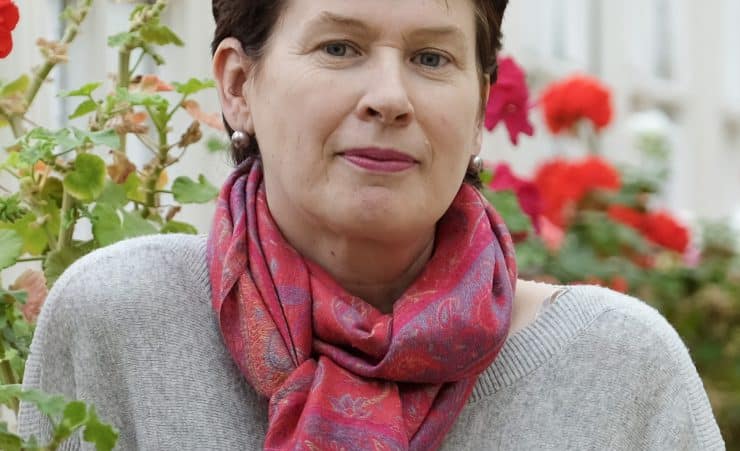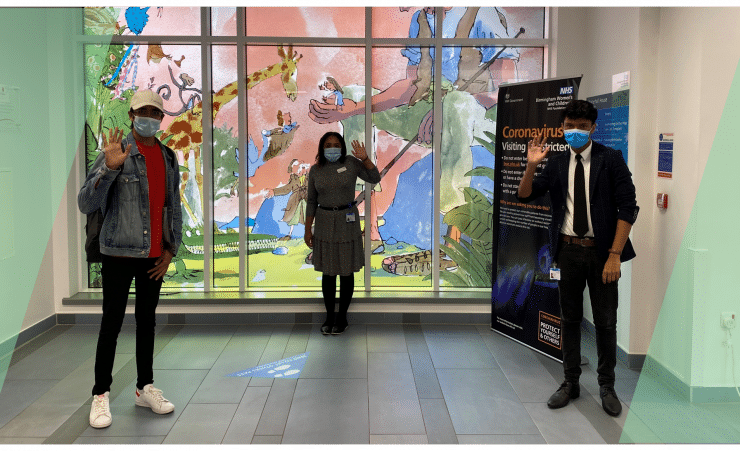
Acting locally in the Covid-19 era
At a national level, of course, we have needed to mobilise the public sector, most notably the NHS. At a personal level, social media has provided ways for us to communicate with friends, family and colleagues across continents. But has the pandemic either stimulated – or stifled – local community action?
At one level, helping a neighbour with shopping; waving through the window to someone in isolation; sticking up a poster about a Mutual Aid scheme; all represent important contributions to our local communities. We could think of these as individual civic acts. Alongside this, mobilising our contacts with voluntary, community and co-operative organisations in our towns and villages has also been crucial. Local community action has an important complementary role to play in the current crisis but it also faces challenges.
Vulnerable people hardest hit
First, it’s important to note that community groups were already providing frontline support to people before the crisis. For example, they may have offered support or advocacy to people who were homeless or living in overcrowded temporary hostels; to undocumented migrants who encountered barriers to accessing health care; and to people on low incomes who relied on food banks to survive.
Second, it’s worth recognising that local groups have encouraged the associational life that is so important for mental wellbeing and local engagement. Over the last months most community centres have necessarily remained closed. These were places where people might learn yoga, drama or juggling; or organise and advocate for local needs; or provide places to socialise and meet friends. These are not frontline emergency services. But they may be vital locations for fostering mutual support and wellbeing.
Practitioner Voices
Let’s take two examples. At one community centre, in a densely packed neighbourhood in the south, volunteers have been regularly cleaning the garden as a convivial social space. Janet, one of the trustees, pointed out that the centre’s normal activities had ceased following government guidance several months earlier but ‘we have kept the garden open for local residents with strict rules on social distancing’. They rely ‘purely on room hire and fundraising activities’. At present ‘there is no income coming in’ and ‘we don’t get grants’.
Meanwhile, a community centre on a new-build estate, have been operating an independent food bank. Sam, a committee member, underlined that health, housing and food were ‘the most basic aspects of life’. In this locality, ‘most people coming to food banks are on universal credit’ and, according to Sam, they are ‘self employed on low incomes that aren’t sufficient to cover their costs’. Their policy was that there would be no means test. Meanwhile, donations of money are preferred – rather than odd combinations of non-nutritious items – so that quality food can be distributed.
For him, the reason that Covid-19 had been such a disaster was because ‘for many people affordable secure housing, sufficient nutritious food and decent access to health services was already not part of their world’.
These two vignettes illustrate some modest but important examples of responses to the effects of Covid-19 by local community groups as well as indications of their own organisational fragility. Certainly, Public Health England’s (2020) [1] examination of the pandemic points to the higher risk faced by older people, Black, Asian and Minority Ethnic groups, as well as for those living in deprived areas or in medical and menial employment roles. Local community action groups work closely with many of these groups.
The Outlook
It seems a different era since headlines on the 31st January 2020 read ‘First case of Corona virus confirmed’ [2]. For analysts such as John Gray [3], the arrival of the virus did not represent ‘a shift to small-scale localism’ however he argued that ‘…the hyperglobalisation of the last few decades is not coming back either.’ Gray’s analysis holds echoes of Paul Hirst’s [4] ideals of a local or regional associationalism that sought democratised private and public agencies.
The important support roles of local community action can easily be overlooked. Their multiple voices need to be heard in any post-Covid reappraisals of our social and economic structures. Their practical, social and convivial roles remain a vital contribution at the local level.
References
[1] Public Health England (2020) Disparities in the risk and outcomes of COVID-19, London: PHE publications.
[2] Burgess, K. (2020) ‘First case of Corona virus confirmed’, The Times; 31 Jan, 2020. https://www.thetimes.co.uk/article/world-health-chiefs-declare-coronavirus-is-global-emergency-9pc9jkkfk.
[3] Gray, J. (2020) ‘Why this crisis is a turning point in history’, New Statesman; 1/4/2020.
[4] Hirst, P. (1994) Associative Democracy. New forms of economic and social governance. Cambridge: Polity Press.
NB Names of those interviewed are anonymised at respondents’ request.


